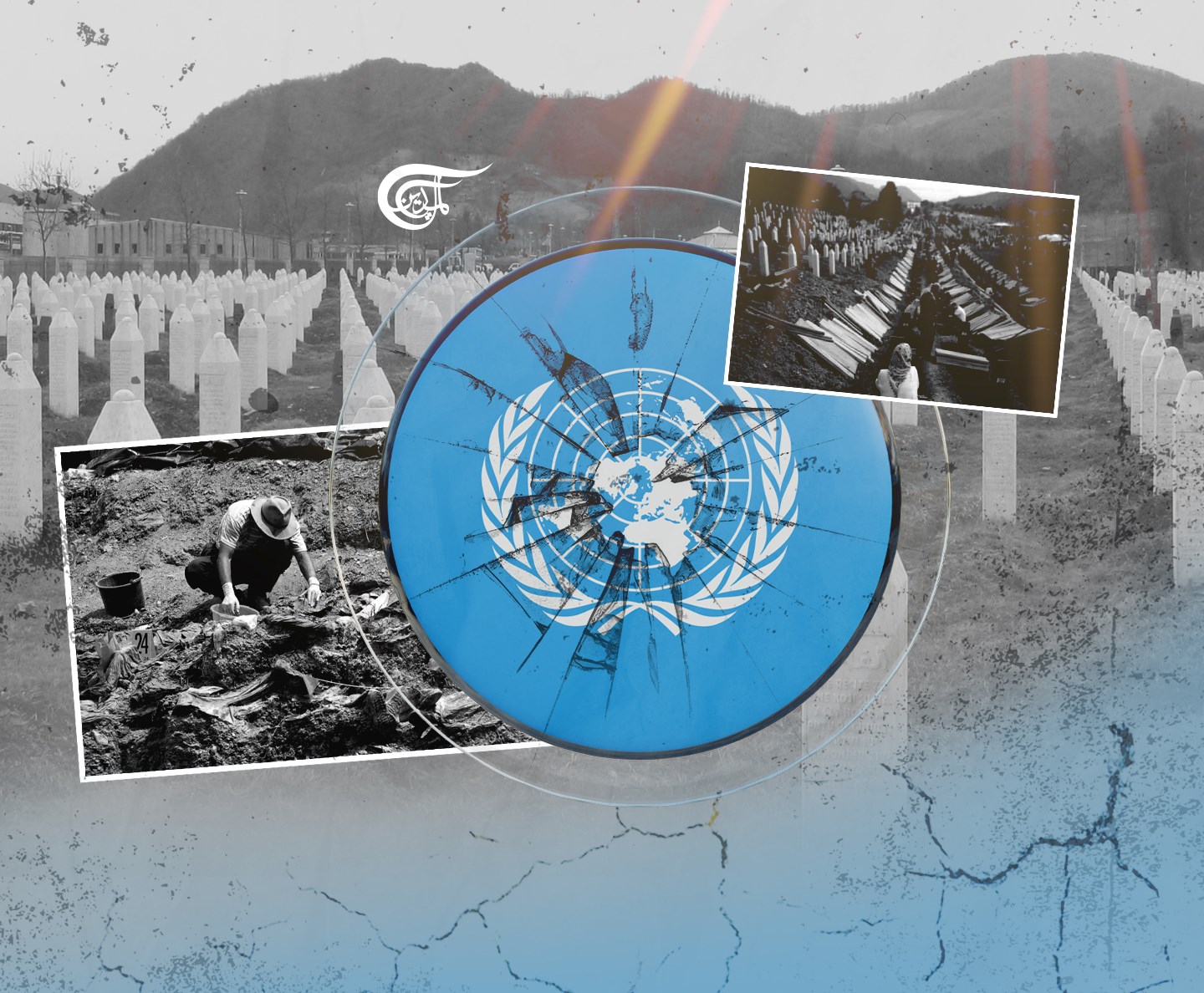Amid the global chaos, let’s not forget Srebrenica
Undoubtedly, the tragedy of the Bosnian massacre serves as a harsh reminder of the devastating consequences that arise when we fail to take action or choose to do nothing when to protect innocent civilians from deliberate or unintended harm.
“You are now under the protection of the UN. I will never abandon you.” These were the words French General Philippe Morillon uttered to the traumatized Bosnian Muslims in Srebrenica; little did they know about the horror awaiting them.
The collapse of Yugoslavia in the early 1990s led to conflicts between different ethnic and religious groups. Under Slobodan Miloševic's leadership, Serbia invaded Bosnia claiming to ‘free’ Serbian Orthodox Christians living there. A military campaign was launched by Serbs to ‘cleanse’ Bosnia of its Muslim civilian population by systematically targeting Bosnian Muslims (Bosniaks). Sarajevo, the capital, was surrounded, and many Bosniaks were driven into concentration camps where they faced atrocities. The eastern part of Bosnia, in particular, experienced extreme brutality, with entire villages being wiped out and towns set ablaze. This campaign, "ethnic cleansing", resulted in the killing or displacement of countless people over the years.
Amid this chaos, survivors sought refuge in three eastern enclaves — Goražde, Žepa, and Srebrenica— where the Bosnian government forces had managed to resist the onslaught. Although, they were constantly bombarded and cut off from essential supplies like food and medicine. Srebrenica, an eastern Bosnian town, was designated as a United Nations (UN) "safe area”. Srebrenica was called As such under the protection of the United Nations, and it was supposed to be defended by the United Nations Protection Force of 117 Dutch peacekeepers.
Serbs committed a massive massacre in Srebrenica, dubbed genocide by the international courts. Thousands of women, children, and elderly were forcibly displaced, while "battle-age" men were detained and killed. In July, in just five days, more than 8000 Muslim men and boys were taken by Serb troops from the so-called UN safe area of Srebrenica and were brutally massacred.
UN failure to protect civilians
An internal investigation reported that the United Nations ‘appeased and unwittingly abetted the Bosnian Serb military in 1995’ as it carried out the worst mass murder in Europe since World War II. The report acknowledges an extraordinary admission regarding the level of the United Nations’ responsibility for the tragic deaths of thousands of Bosnian Muslims.
It is mentioned, "It is with the deepest regret and remorse that we have reviewed our own actions and decisions in the face of the assault on Srebrenica. Through error, misjudgment, and an inability to recognize the scope of the evil confronting us, we failed to do our part to help save the people of Srebrenica from the Serb campaign of mass murder. No one regrets more than we the opportunities for achieving peace and justice that were missed. No one laments more than we the failure of the international community to take decisive action to halt the suffering and end a war that had produced so many victims."
Britain, France, and the US pursued peace at the cost of Srebrenica.
As per many documents and reports, which surfaced over time, it becomes evident that the fall of Srebrenica was not a merely isolated event but rather a result of a ‘larger policy’ pursued by the three major powers — Britain, France, and the US — along with the leadership of the United Nations. This policy aimed at achieving peace at any cost, even if it meant sacrificing the safety and well-being of the people of Srebrenica.
Moreover, France, Britain, and the US made a significant military decision without informing their allies, particularly the Netherlands, which had a peacekeeping presence in Srebrenica. Mohammed Sacirbey, who served as Bosnia's Foreign Minister then, has claimed that Western countries had given the Serbs a "yellow" light to take control of Srebrenica to facilitate a peace agreement reached months later in Dayton, Ohio. According to Sacirbey, not only were the Dutch authorities kept unaware of this decision, but Serbian leaders and military officials were also informed that they had a "green light" to enter Srebrenica.
This revelation raises questions about Western involvement and their level of responsibility in the Srebrenica tragedy. At that time, these Western powers and the UN leadership were acquiescence or even complicit in timely addressing and acting as the events unfolded in Srebrenica.
The fighting halted following a NATO bombing campaign that compelled the Bosnian Serbs to engage in negotiations. Eventually, the parties involved signed the Dayton Accords in 1995, marking a peace agreement and the establishment of an international force to maintain the ceasefire. The International Criminal Tribunal for Yugoslavia (ICTY) has charged over 160 individuals, including Serbs, Croats, and Bosniaks.
Why is it important to commemorate Srebrenica?
United Nations Secretary-General Kofi Annan, on July 11, 2000, stated, “The tragedy of Srebrenica will forever haunt the history of the United Nations.”
Undoubtedly, the tragedy of the Bosnian massacre serves as a harsh reminder of the devastating consequences that arise when we fail to take action or choose to do nothing when to protect innocent civilians from deliberate or unintended harm. At any cost or by any means, there must never be another Srebrenica. We must refuse to accept anything that costs innocent human lives due to our negligence, silence, or unintended compliance. This also reminds us to stand for Palestinians and all those paying the price of the inaction and silence of the global community.
It’s time for the world to take action against atrocities, genocide, and ethnic cleansing happening anywhere.

 Mariam Shah
Mariam Shah
 5 Min Read
5 Min Read







